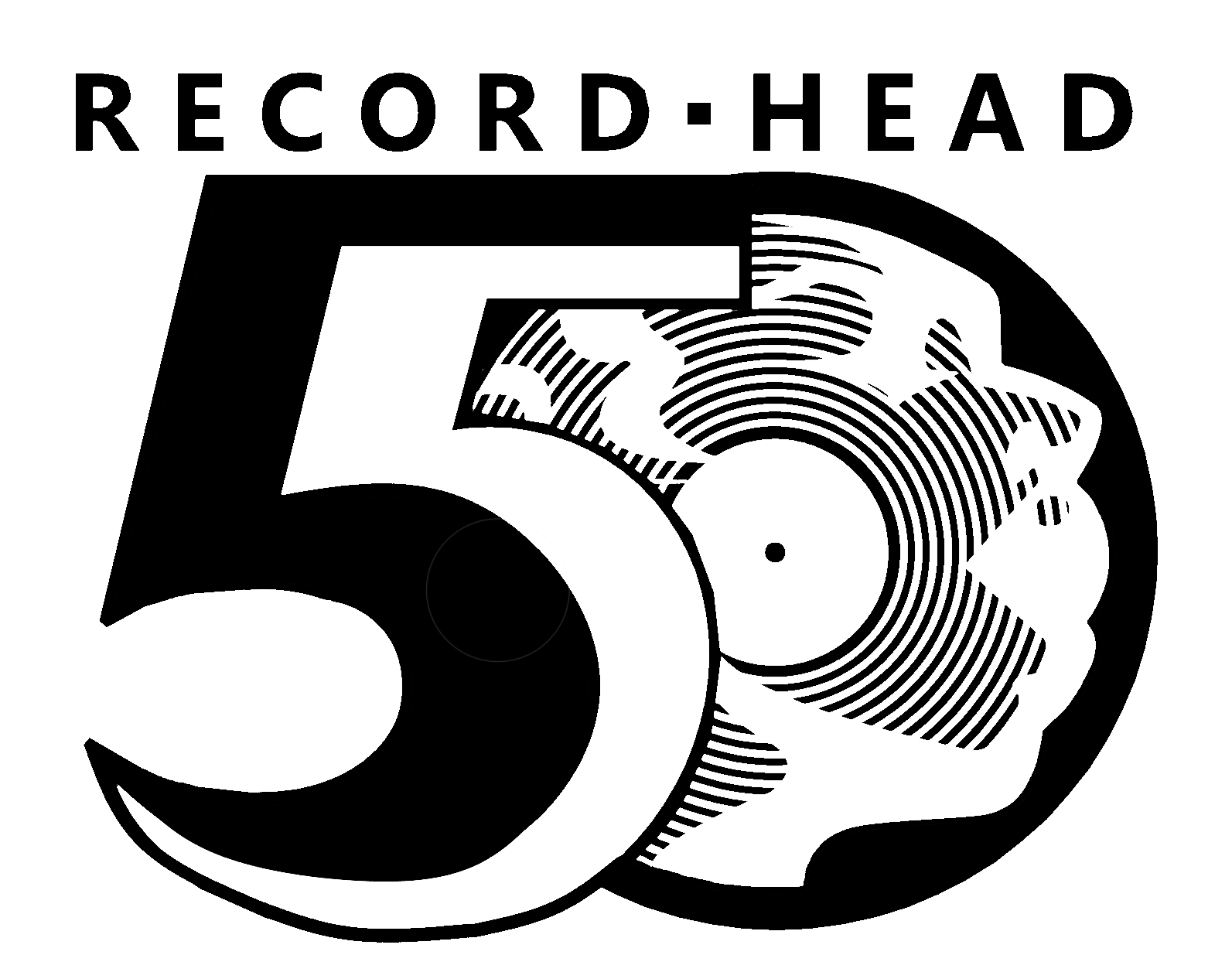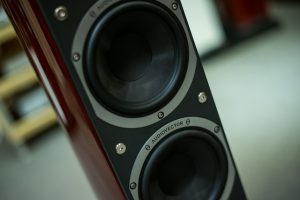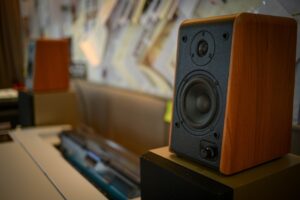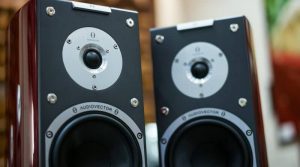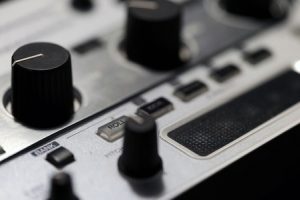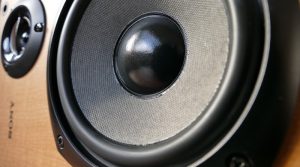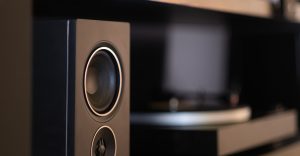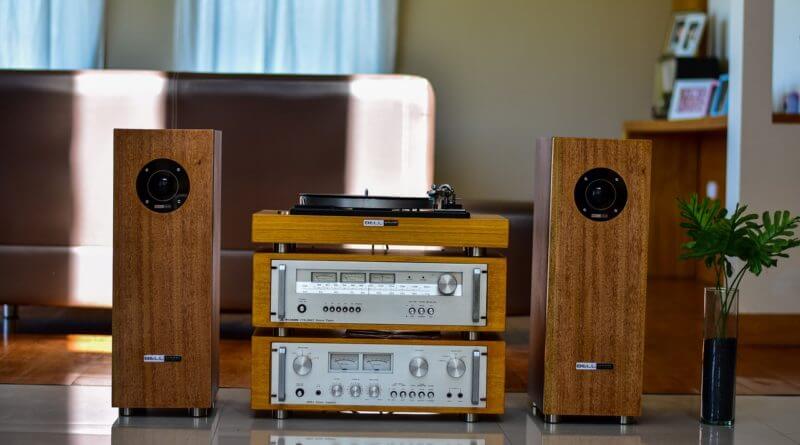
When you’re thinking about a new set of speakers, you should recognize that hearing is relative to the individual. Similar to music taste, something that sounds crystal clear to one person may be shrill or unpleasant to another. Choosing the right pair of speakers will depend on your budget and what you expect to do with your equipment. Will you be recording music or using the speakers for casual listening? This question may guide your approach to a brand name, speaker size and setup style.
What to Listen for in Speakers
Your speaker setup will play a pivotal role in how you perceive sound. When you’re shopping, you may not be able to demo speakers in a location that matches your home or studio environment, but EQ settings can always be adjusted after the initial purchase.
When you’re listening through speakers, remember that analyzing familiar songs and content is crucial. Playing songs you’re familiar with will help you decide if you’re hearing the elements of a piece of music you enjoy. Are the guitars or vocals as prominent as you remember them being in your car or headphones?
Listening for Clarity and Detail
One of the most straightforward concepts you can identify with a pair of speakers is the level of clarity and detail you hear. When you play a familiar song, can you hear everything you’re used to? If tracks sound slightly muffled and instruments are not as defined, it’s time to keep shopping. Your new set of speakers should reveal characteristics of a familiar song that you’ve never heard before.
3D Sound Qualities
If you’re passionate about audio, you know all about three-dimensional sound. An excellent set of speakers should trick you into thinking you’re seeing a live performance. Guitars, drums, bass, keys, vocals and more should sound like they’re coming from all parts of your room or home studio.
Speakers sounding flat usually means cheap materials were involved in the construction of that particular speaker model.
Dynamic Ability
Dynamic range is present in the majority of musical genres. This music sensation of growing louder or softer should be a factor in your choice of new speakers. Cheaper speakers don’t provide justice to dynamic songwriting.
Your new speakers should be able to display immense clarity regardless of overall volume. When you’re testing out speakers, demo songs that have changes in composition, including crescendo and instruments dropping in and out over the duration of the song. If you don’t struggle to hear all song components at a reasonable volume, your speakers can handle dynamic range.
How to Evaluate and Compare Speakers
Try to A/B sets of speakers when you’re demoing songs or original recordings. For those that are unfamiliar with the term, A/B in audio means to switch back and forth between two options. This process can relate to speakers, effects, microphone choices and more.
When you A/B different speaker models, it will become easier to identify what you like to hear, what’s lacking in the sound of a speaker and which brands suit your listening style. Always A/B speakers with the same input and device for accurate results.
Speakers and Home Audio Equipment at Record Head
Are you on the lookout for speakers, instruments, recording gear and similar equipment for your home studio? Record Head is Milwaukee’s hub for buying and selling consumer electronics and media. Contact us today to speak to one of our staff members about how to get the most out of your new home speakers.
